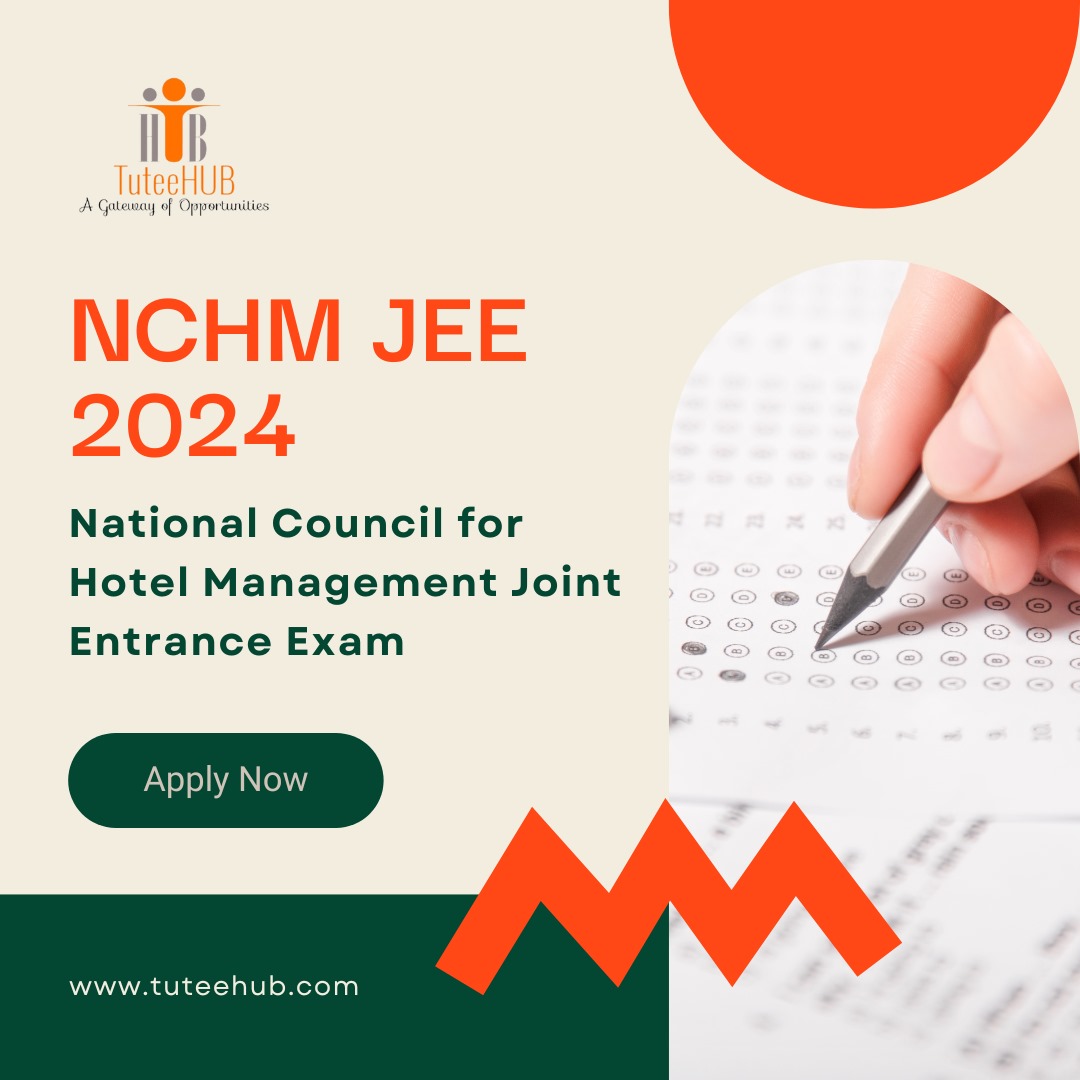Embark on a journey of knowledge! Take the quiz and earn valuable credits.
Take A QuizChallenge yourself and boost your learning! Start the quiz now to earn credits.
Take A QuizUnlock your potential! Begin the quiz, answer questions, and accumulate credits along the way.
Take A QuizChapters
NCHM JEE

Overview
Chapter 1: A Comprehensive Guide to NCHM JEE Introduction to NCHM JEE The National Council for Hotel Management and Catering Technology Joint Entrance Examination (NCHM JEE) is a prestigious national-level entrance exam conducted by the National Testing Agency (NTA). This highly competitive exam is the gateway for aspiring candidates to secure admission into India's premier hospitality and culinary institutes, including the National Council for Hotel Management and Catering Technology (NCHMCT) and its affiliated institutes. Overview of the Exam NCHM JEE is a computer-based test (CBT) typically held once a year, usually in April or May. The exam consists of three sections: Aptitude for Service Sector Reasoning and Logical Deduction Numerical Ability and Scientific Aptitude Each section comprises 40 multiple-choice questions, totaling 120 questions. Candidates are allotted 3 hours to complete the exam. Eligibility Criteria To be eligible for NCHM JEE, candidates must meet the following criteria: Age: As of July 1 of the exam year, candidates must not have attained the age of 22 years. Qualification: Candidates must have passed the Class 12 examination (10+2) or its equivalent from a recognized board with a minimum aggregate score of 50%. Subjects: The Class 12 qualification must include English as a compulsory subject. Additionally, candidates must have studied Mathematics or Statistics as a subject. Exam Pattern Section 1: Aptitude for Service Sector (40 questions) Service aptitude and attitude Communication skills Interpersonal skills Customer handling skills Problem-solving skills Section 2: Reasoning and Logical Deduction (40 questions) Verbal reasoning Non-verbal reasoning Analytical reasoning Decision making Section 3: Numerical Ability and Scientific Aptitude (40 questions) Numerical ability Data interpretation Scientific aptitude General knowledge Marking Scheme Each correct answer carries 4 marks. There is no negative marking for incorrect answers. Exam Duration and Language Exam Duration: 3 hours Exam Language: English and Hindi Exam Centers NCHM JEE is conducted across various cities in India. Candidates can choose their preferred exam center during the application process. Admission Process Based on their NCHM JEE scores, candidates are invited to participate in the counseling process conducted by NCHMCT. During counseling, candidates are allotted seats in various NCHMCT affiliated institutes based on their rank, merit, and preferences. Conclusion NCHM JEE is a crucial step in the journey of aspiring hospitality professionals. By understanding the exam pattern, eligibility criteria, and marking scheme, candidates can prepare effectively and increase their chances of success. With determination and hard work, candidates can secure their place in India's leading hospitality and culinary institutes and embark on a fulfilling career in this vibrant and rewarding industry. FAQs: Q: What is NCHM JEE? A: It is a national-level entrance exam for admission into India's top hospitality and culinary institutes. Q: Who conducts NCHM JEE? A: The National Testing Agency (NTA) conducts NCHM JEE. Q: When is NCHM JEE typically held? A: Usually in April or May. Q: What are the sections of NCHM JEE? A: Aptitude for Service Sector, Reasoning and Logical Deduction, and Numerical Ability and Scientific Aptitude. Q: What is the duration of NCHM JEE? A: 3 hours. Q: What is the marking scheme for NCHM JEE? A: 4 marks for each correct answer; no negative marking. Q: What is the age limit for NCHM JEE? A: Candidates must not have attained 22 years as of July 1 of the exam year. Q: What is the minimum qualification for NCHM JEE? A: Class 12 (10+2) with at least 50% aggregate and English as a compulsory subject. Q: Where can candidates choose their exam center? A: During the application process. Q: How are candidates allotted seats in NCHMCT affiliated institutes? A: Based on their NCHM JEE scores and merit through the counseling process conducted by NCHMCT.
Start TutorialPosted on 01 Sep 2024, this text provides information on NCHM JEE. Please note that while accuracy is prioritized, the data presented might not be entirely correct or up-to-date. This information is offered for general knowledge and informational purposes only, and should not be considered as a substitute for professional advice.
Similar Tutorials

Advanced Excel Charts Tutorial: How to Create Prof...
Learn how to create professional charts in Excel with our advanced Excel charts tutorial. We'll show...

Advanced Excel Functions: Tips and Tricks for Boos...
Are you tired of spending hours working on Excel spreadsheets, only to find yourself stuck on a prob...

Apache Flume Tutorial: An Introduction to Log Coll...
Apache Flume is a powerful tool for collecting, aggregating, and moving large amounts of log data fr...
Explore Other Libraries
Related Searches
Please allow ads on our site
Please log in to access this content. You will be redirected to the login page shortly.
Login
Join Our Community Today
Ready to take your education and career to the next level? Register today and join our growing community of learners and professionals.

Your experience on this site will be improved by allowing cookies. Read Cookie Policy
Your experience on this site will be improved by allowing cookies. Read Cookie Policy


Comments(0)